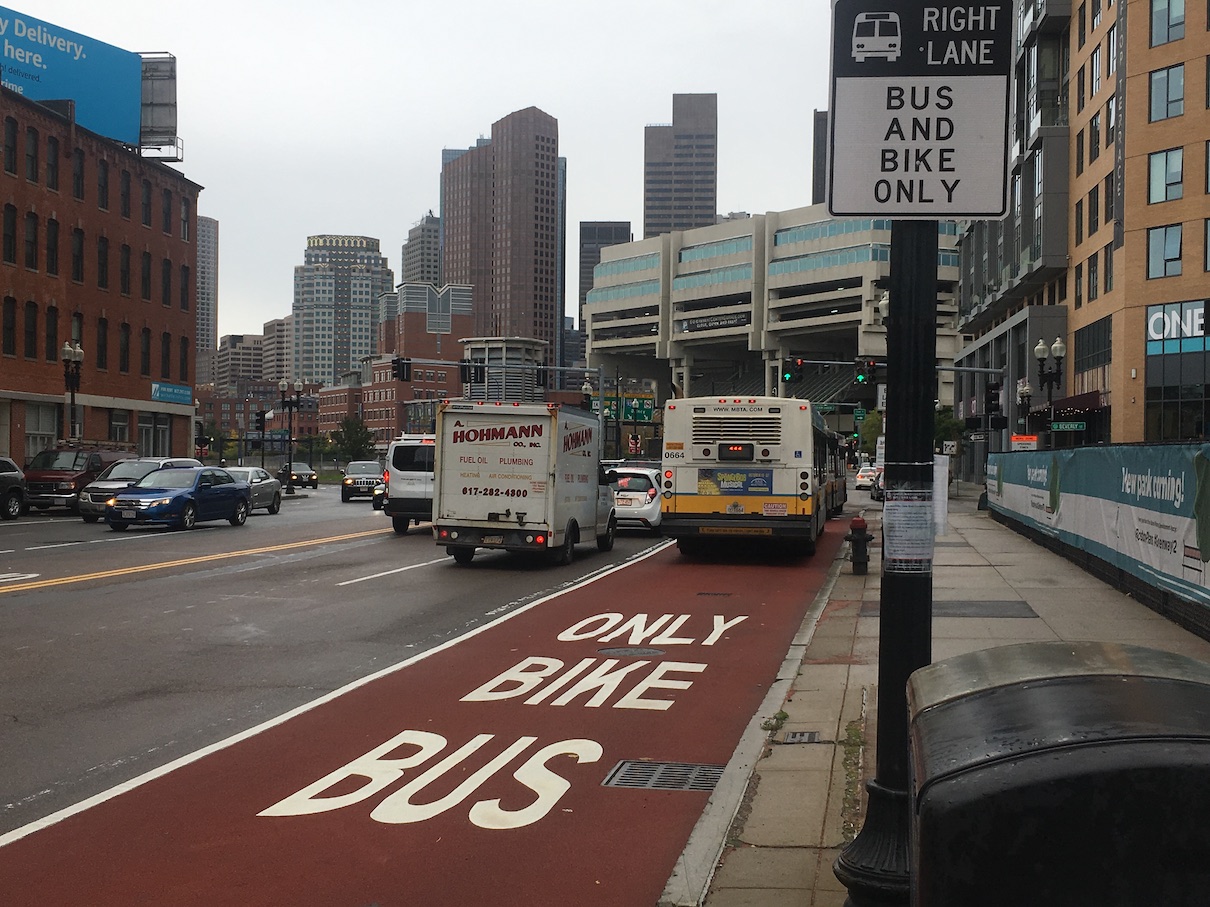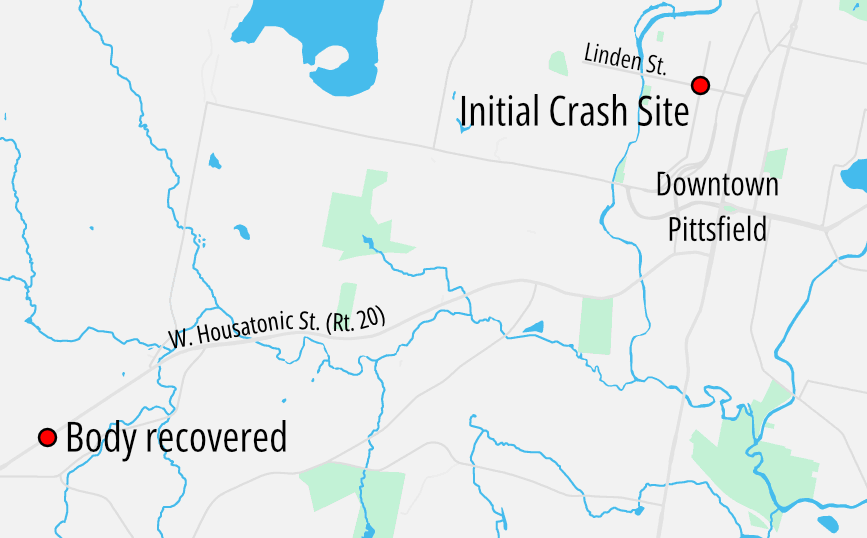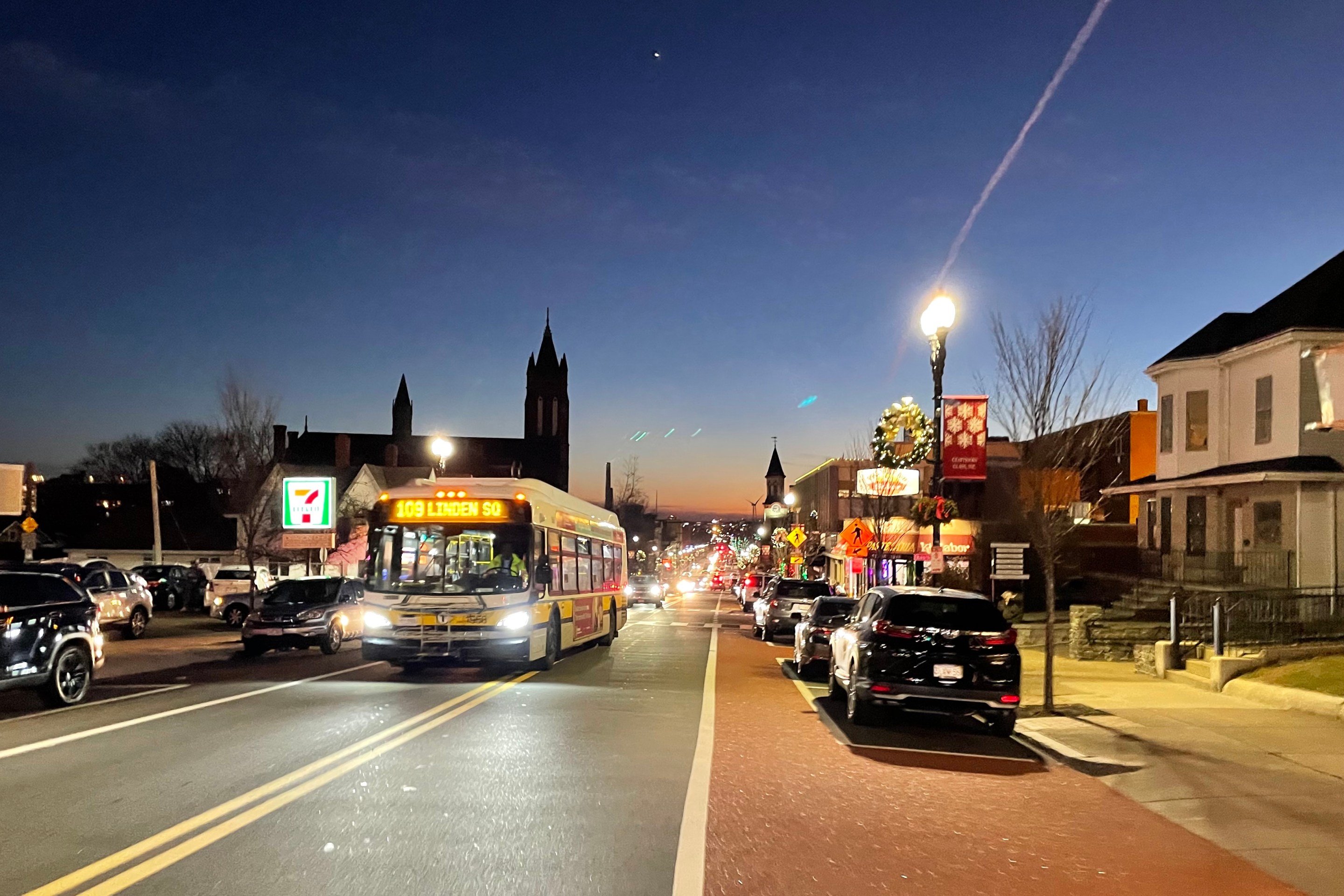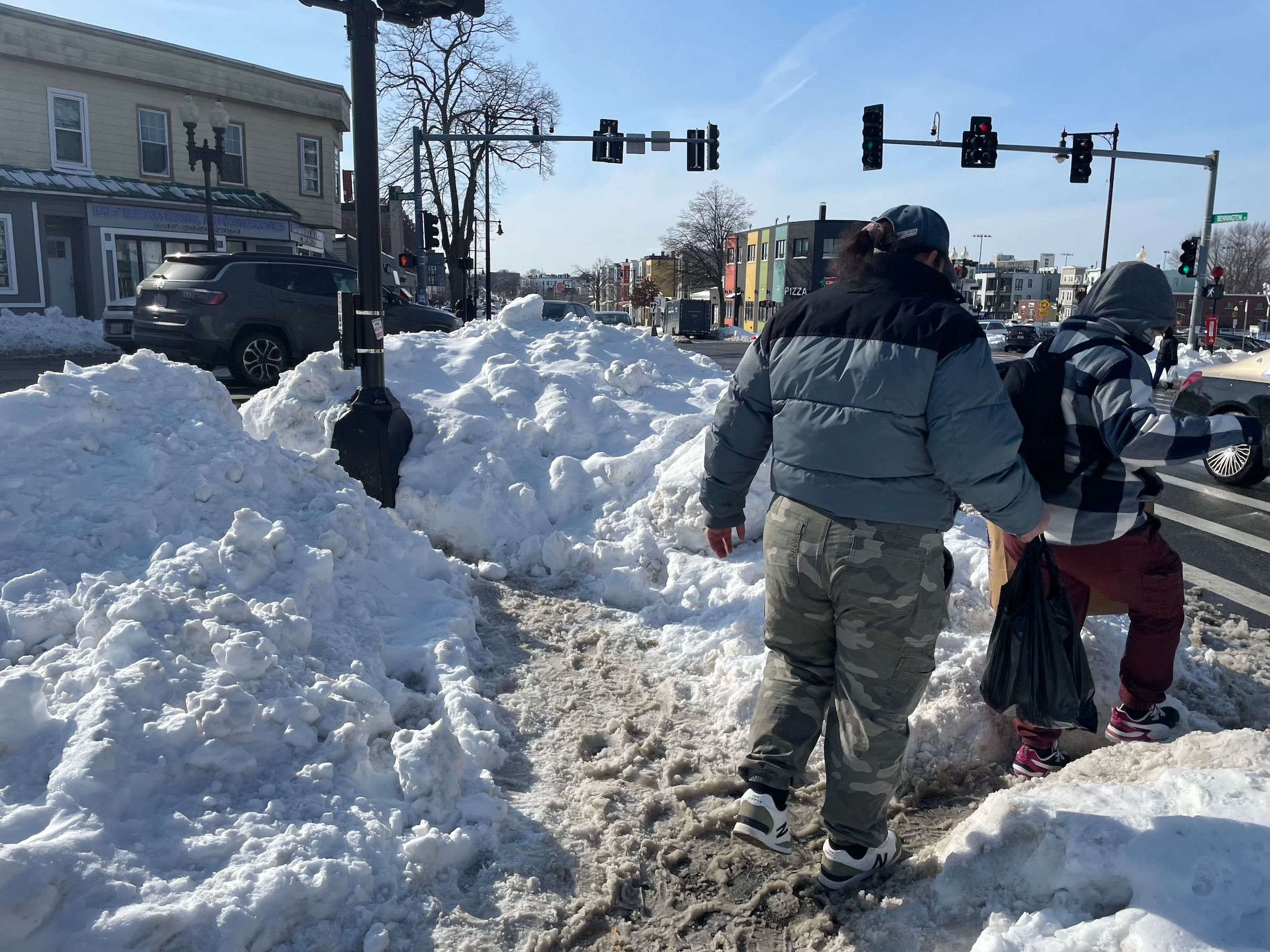The MBTA and MassDOT held a joint board meeting on Monday afternoon with updates and decisions on the T's austerity measures, pandemic recovery forecasts, and its bus network redesign effort.
More details emerge on Tobin Bridge bus lane proposal
A new southbound bus lane on the Tobin Bridge will go into service on December 14th, reported MassDOT highway administrator Jonathan Gulliver.
The lane will extend from the Everett St. ramp in Chelsea, where Route 111 buses join the bridge, to the City Square tunnel in Charlestown.
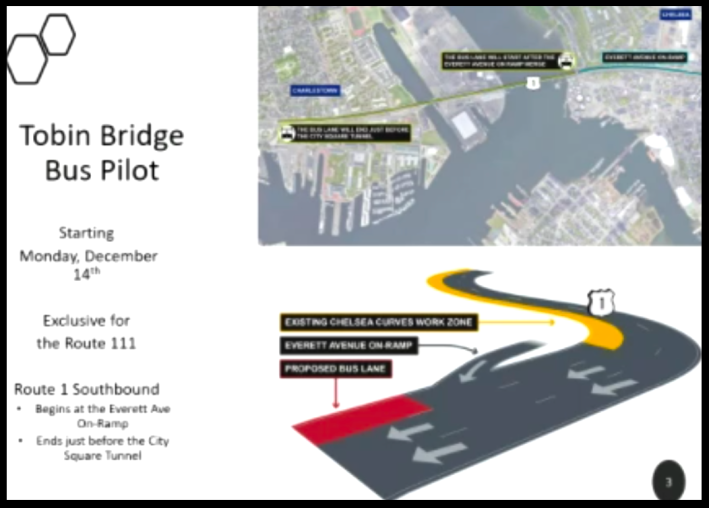
"We are expecting this pilot to be in place for a minimum of six months so we can gather necessary data but we are prepared to leave it in for an extended duration if necessary – up to two years," said Gulliver.
The high-occupancy vehicle lane on I-93 in Somerville has also been re-installed "effective this morning," said Gulliver.
In follow-up remarks, MassDOT Secretary Stephanie Pollack said that data collected from the pilot would inform whether the new bus lane could be made permanent, and whether "there could be opportunities to expand to the northbound side."
Highway, Transit Traffic Both Declining Again Amidst 'Second Wave'
More people appear to be staying home as the Commonwealth struggles with a second wave of COVID-19 transmission.
MassDOT has published a new "data dashboard" to illustrate traffic and travel trends since March, and while transit ridership and highway traffic volumes were climbing slowly over the summer, they've since plateaued, and have actually decreased in recent weeks.
That trend is one reason why the T's budget planners are being more pessimistic in their budget planning for 2021 and 2022.
T issues new budget projection: a half-billion dollar deficit for 2022
Much of Monday afternoon's MBTA board meeting was given over to the T's budget planning for 2021 and 2022, and the picture continues to be bleak. For the 2022 fiscal year, which will begin in seven months, the T's budget planners now expect a $584 million budget deficit.
That projection is based on a more pessimistic scenario for post-pandemic ridership, where buses and trains regain only 55 percent of their pre-pandemic traffic by mid-2022. Even under the agency's most optimistic scenario, where ridership recovers to 80 percent of pre-pandemic levels by the summer of 2022, the T still would expect a $422 million shortfall next year.
"Unfortunately, service level adjustments are necessary to address the budget issues in 2022 and in 2021, especially given the uncertainty in fare revenue," MBTA chief financial officer Mary Ann O'Hara told board members.
Board chair Joseph Aiello offered a note of skepticism over the T's more pessimistic ridership scenarios.
"With the three vaccines out there, and better therapeutics, the potential that the last part of this fiscal year and the next fiscal year could be much more optimistic than I think any of us were, even 30 days ago," said Aiello.
The board did agree that they'd like a little more time before they vote on service cuts: T management had proposed a formal board vote on service cuts for December 7, but at the suggestion of board member Chrystal Kornegay, that decision looks likely to be put off one more week, until December 14th.
Cuts also stall bus, commuter rail transformation initiatives
Budget cuts will also postpone the T's plans to reimagine its bus and commuter rail network. Hiring for the nascent "bus transformation" and "rail transformation" offices has been frozen; a $20 million line-item for early action on the T's "Rail Vision" plan has been cut in half, and "will likely be reduced to 1 or 2 small projects," according to a staff presentation.
The same goes for some of the more ambitious new bus services the T had been planning. A $50 million "Municipal Bus Lane Challenge" initiative has been delayed, and proposed bus network redesign pilot projects, like Boston's "Center City Connector" proposal, will be "either cancelled or delayed indefinitely."
Fossil-fueled replacement buses coming to the Silver Line
Near the end of the meeting, the T board also gave its formal approval to the T's plan to replace the Silver Line's "dual-mode" buses, which run on electric power inside the Seaport transit tunnel, with new diesel-powered "enhanced hybrid" buses – a step that's been viewed as a step backwards by environmental advocates.
The new buses will include on-board batteries to enable zero-emissions operation in the Seaport bus tunnel, but those batteries would be recharged with the buses' onboard diesel engine, instead of drawing energy from the electric grid. That means that those engines will need to do extra work to recharge the batteries when they're running outside the Seaport's tunnel.
Board members asked probing questions of the T's vehicle engineering staff to understand how much the new buses would be able to operate in their battery-only, zero-emission mode through neighborhoods in Chelsea and East Boston, and staff agreed to strive to minimize the diesel engines' operation, and to investigate the possibility of on-wire charging for the new buses.
